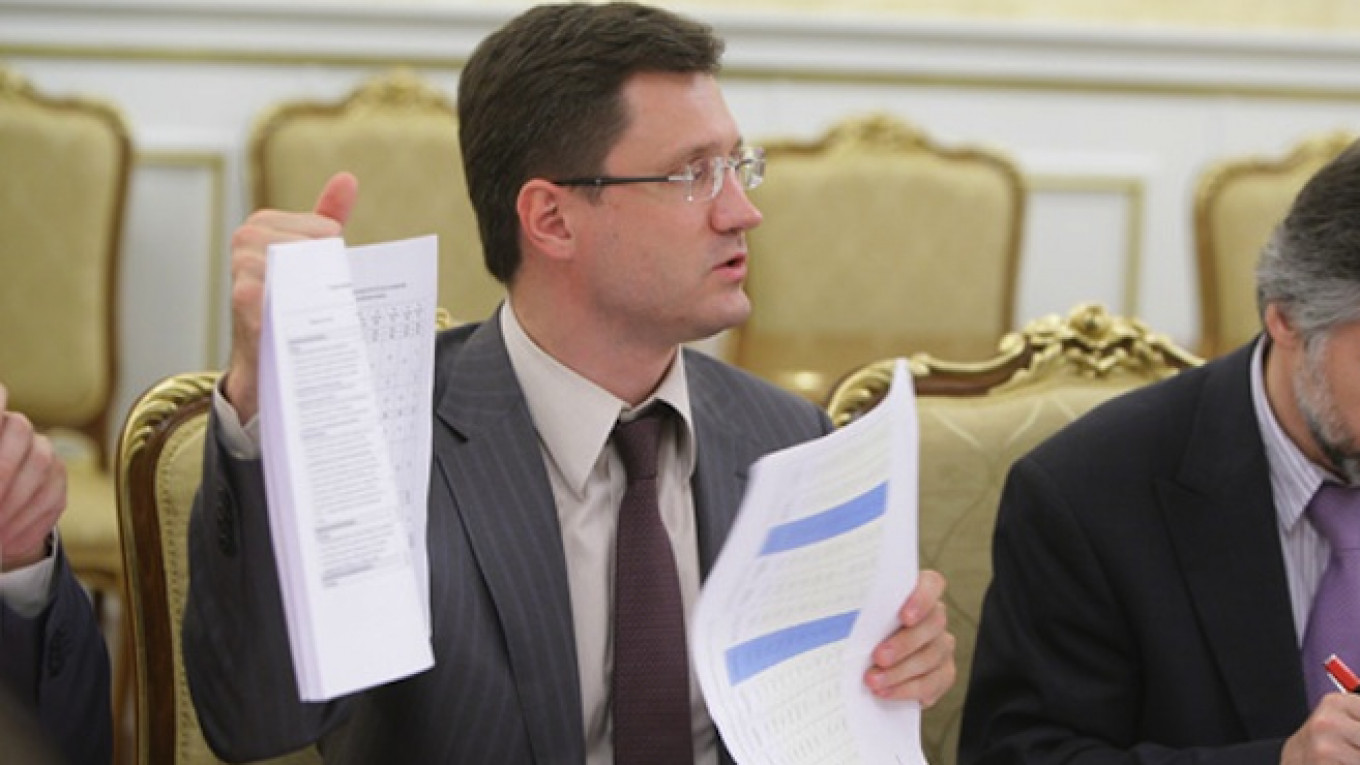After eight months of talks, Russia and Iran have yet to agree concrete details of a large oil-for-goods deal, highlighting the difficulties the two major energy producers face in overcoming sanctions from the West.
On Tuesday, Russia puzzled markets when it first said the landmark deal had been agreed with Iran — but later withdrew the statement.
On Wednesday, a new statement gave no indication of volumes or the time frame of the deal: "Based on Iran's proposal, we can participate in arranging crude oil shipments, including to Russia … Volumes are to be determined by market needs."
In January, sources told Reuters Iran and Russia were negotiating an oil-for-goods swap worth $1.5 billion a month that would enable Iran to lift oil exports substantially, undermining Western sanctions.
Under the proposed deal Russia would buy up to 500,000 barrels a day or a third of Iranian oil exports in exchange for Russian equipment and goods, sources have said.
But as talks progressed, the figures of potential oil sales kept edging down. Traders said Iranian oil sales to Russia made no economic sense and were technically difficult as Russia has no refineries next to big ports which could process oil.
If Russia marketed Iranian crude for sales to third countries, it would still violate sanctions, traders have said.
On Wednesday, Kommersant cited sources as saying the latest figures discussed at talks were in the area of 2.5 to 3.0 million tons a year (50,000 to 60,000 barrels per day) or a tenth of the original plan.
The Energy Ministry declined to comment on the specifics of the deal. Kommersant said supplies could be organized via a Russian state-controlled trader.
Tehran's oil exports have been slashed to some 1.0 to 1.5 million bpd from 2.5 million bpd two years ago after the West imposed thought sanctions in a stand-off over Iran's nuclear program.
Since January, Moscow itself came under heavy Western sanctions for the annexation of Ukraine's Crimea and what the West sees as funding and weapon supplies to rebels in eastern Ukraine who fight pro-Western government forces.
Russia, the world's second largest oil exporter after Saudi Arabia with supplies amounting to up to 5 million bpd, relies on energy for half its budget revenues.
See also:
Russia Says Iran Oil-for-Goods Deal Would Follow UN Rules on Sanctions
A Message from The Moscow Times:
Dear readers,
We are facing unprecedented challenges. Russia's Prosecutor General's Office has designated The Moscow Times as an "undesirable" organization, criminalizing our work and putting our staff at risk of prosecution. This follows our earlier unjust labeling as a "foreign agent."
These actions are direct attempts to silence independent journalism in Russia. The authorities claim our work "discredits the decisions of the Russian leadership." We see things differently: we strive to provide accurate, unbiased reporting on Russia.
We, the journalists of The Moscow Times, refuse to be silenced. But to continue our work, we need your help.
Your support, no matter how small, makes a world of difference. If you can, please support us monthly starting from just $2. It's quick to set up, and every contribution makes a significant impact.
By supporting The Moscow Times, you're defending open, independent journalism in the face of repression. Thank you for standing with us.
Remind me later.






